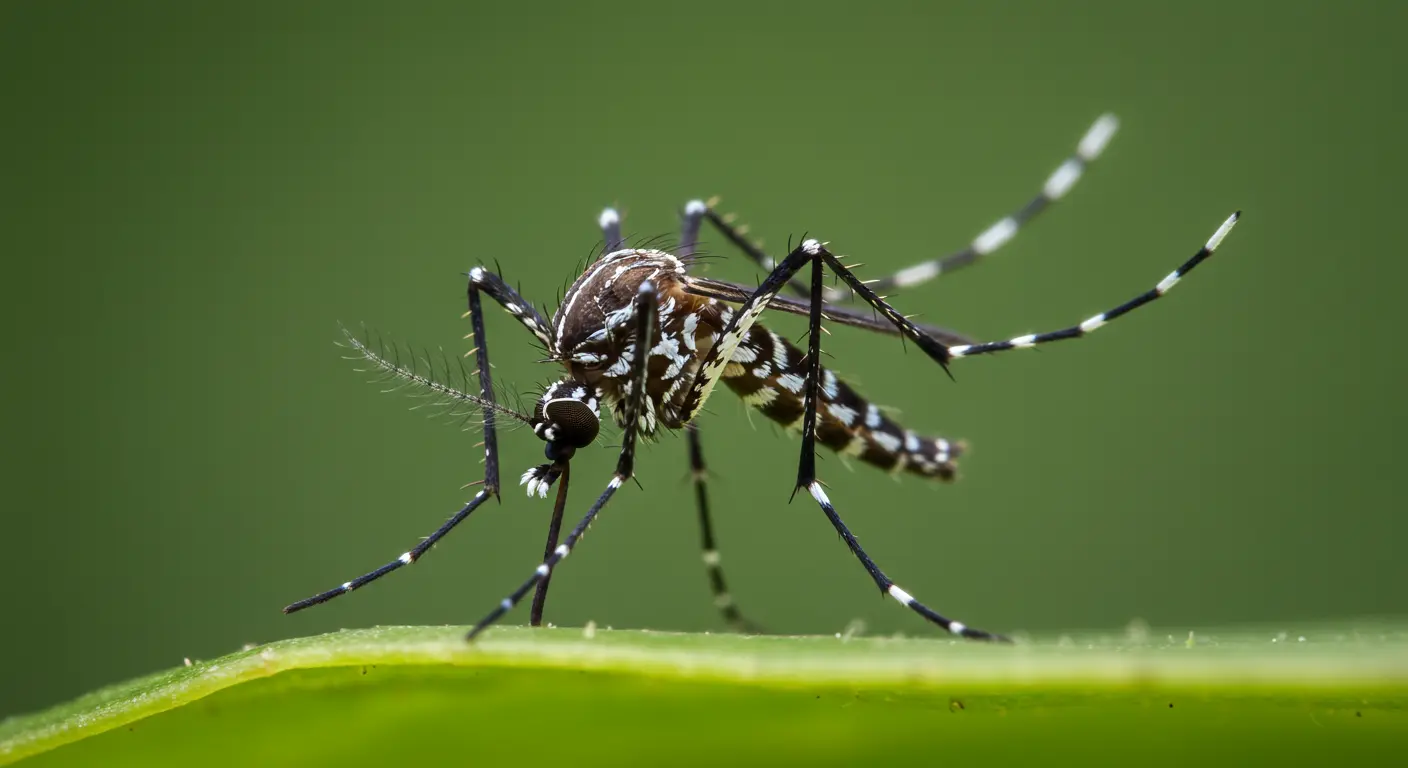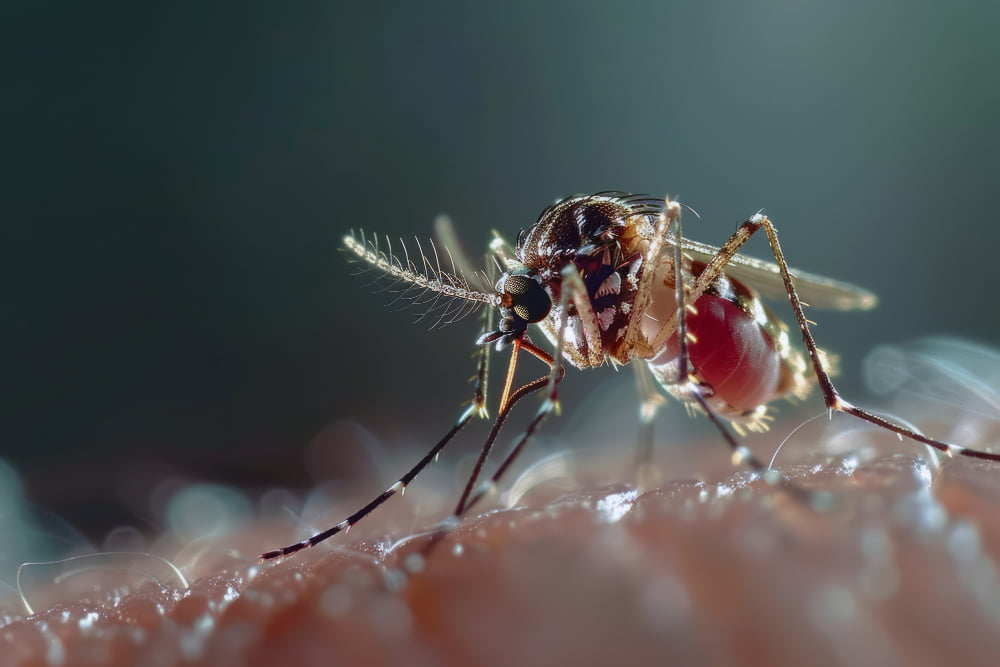That sticky, still air after a summer downpour? It’s the perfect storm for mozzies to come out in full force. They buzz in faster than your backyard dries, annoying bites, sleepless nights, and endless slapping begin soon after.
It’s not just bad luck; there’s a real reason why mosquitoes surge after rain. Those leftover puddles and damp corners become prime breeding grounds, while warm temperatures speed up their life cycle almost overnight. Before you know it, your yard’s turned into their ideal nursery.
And let’s be honest, citronella candles and wristbands don’t cut it when your outdoor space becomes ground zero.
We help Tweed Coast homeowners who’ve had enough of battling mozzies after every downpour, bringing back peaceful evenings and bite-free nights.
At TSD Pest Control, our proven, eco-friendly treatments target the root and keep your home comfortable, inside and out.
Mosquitoes Multiply After Rain
After the rain clears, we often get asked – why do mozzies seem to double or triple overnight? It’s no coincidence. The rain doesn’t just bring greener lawns; it unlocks perfect breeding spots for mosquitoes, making backyards across Tweed Heads buzzing hotspots. These quick-breeding pests love moisture, and wet weather acts like a trigger.
Rainfall Triggers the Breeding Cycle
Once rain hits, mosquito eggs waiting in dry areas hatch within 48 hours. Puddles, garden trays, and stormwater collections spring to life with larvae almost immediately. These tiny swimmers grow fast, especially in littered or shady spots. This cycle repeats with each downpour, cranking up the mozzie numbers around Banora Point and Stotts Creek.
Where Mosquitoes Multiply Post-Rain
Most of the time, mozzie hotbeds are hiding in plain sight. Leftover water in pot saucers, blocked drains, birdbaths, and even upturned lids becomes ideal for eggs. Rain barrels and yard toys make it worse if left open. We’ve seen it all in the Tweed Coast, and these gathering points are mosquito magnets.
Surge Linked to Life Cycle Speed
Warm, wet days shorten the mosquito lifecycle drastically. It takes as little as 7 days for an egg to become a biting adult. Frequent rain allows eggs to hatch in overlapping cycles, causing constant waves of activity. It’s why homes in Fingal Head and Cudgen experience relentless bites week after week.

Why Rain Doesn’t Wash Them Away
You’d think heavy rain would flush them out. In reality, mosquitoes are built to ride it out and re-emerge stronger than before. They’ve adapted to duck and shelter, hiding under leaves or eaves, waiting for calm skies to return.
Mosquitoes Shelter Through Rain
During showers, mozzies know how to bunker down. Leaf undersides, fences, and outside furniture offer quick cover. Rain won’t knock them out – it buys them time while eggs hatch quietly beneath puddles. We often find booming populations in quiet corners after sunny breaks.
Humidity Promotes Activity
Rain boosts humidity levels, and mosquitoes take advantage. After a storm, they stay out longer, fly farther, and bite more aggressively. With still water and sticky air combined, they thrive fast. We’ve tracked this uptick across our coastal communities – especially near garden-heavy homes.
Warm Conditions Support Reproduction
Warmth speeds everything up. Post-rain heat triggers faster development and urge-to-bite cycles. Areas like the Northern Rivers experience more outbreaks due to consistently higher temperatures, even in the evenings. It’s why mosquitoes are more persistent here than in cooler inland towns.
Health Risks from Post-Rain Mosquitoes
Beyond the itchy welts and buzzing around your ear, mosquitoes can carry harmful illnesses. After a rainy spell, their sheer numbers increase the risk of disease across both homes and communities.
Common Mosquito-Borne Illnesses in Australia
In coastal NSW, we’ve seen increases in viruses like Ross River, Barmah Forest, and even Dengue in some outbreaks. Not every mosquito carries these, but large populations after storms increase the odds. The real concern? Some carriers show no signs but can still pass viruses to humans.
Rise in Bites Can Mean Rise in Illness
When bites multiply, so do the risks. Each bite is an open door for disease transmission. Watch closely for fever, joint pain, or rashes that show up days later. We’ve helped residents in Tweed Heads spot early symptoms and seek help in time.
Mosquito Allergens and Bite Reactions
Everyone reacts differently, but the cause is always the same – saliva. The proteins they inject trigger an immune response, leading to red, swollen bumps and persistent itching. For some, it’s mild; for others, it’s several days of discomfort. Children and pets are often more sensitive.
Effective Measures to Control Mosquitoes
Responding is easier if your game plan kicks in right after the rain ends. We target both breeding grounds and adult zones to stop the buzz before it begins.
Eliminate Breeding Areas
Start by draining anything holding water. We recommend a walk-through after each storm – tip out pots, clear gutters, and empty trays under plants. Water tanks should be sealed tightly. Keep lids on bins and flush out drains regularly. We inspect these spots during every service in Bungalora and nearby places.
Use Protective Barriers
Mesh window screens are your home’s best defence. Mozzies sneak in through broken seals, cracked sills, or open vents. Fix gaps around doors and use netting for patios or verandahs. We’ve helped dozens in Banora Point seal off these unnoticed access points.
Select Effective Repellents
We always recommend DEET-based repellents for long-lasting protection. For natural choices, oil of lemon eucalyptus or citronella works well for short periods. Reapply as needed, especially after sweating or swimming. These aren’t one-size-fits-all, but a good product makes outings more bearable.
Natural and Biological Controls
Fish like guppies can clean up larvae in ponds. For planter areas, neem or peppermint oil can make ideal barriers. These don’t kill mosquitoes but stop them from landing or laying eggs. We include eco-friendly suggestions like these in our seasonal mosquito plans.

Longer-Term Community and Government Action
One backyard effort isn’t enough when mozzies swarm street-wide. That’s where community and council involvement truly matter. We’ve seen whole suburbs benefit from shared efforts in Fingal Head and the surrounding zones.
Sanitation Reduces Population
Public waste bins and stormwater channels must stay clean. Councils need to clear drains and green bins routinely. Blocked gutters on streets contribute to high numbers. We regularly align with council cleanup schedules to time our treatments accordingly.
Public Awareness is Crucial
In peak season, town notices and flyers matter. We work with neighbourhood groups to arm locals with effective prevention tips. Referencing simple tasks like clearing tray water or trimming foliage makes a big difference – especially when entire streets get involved.
Other Influences on Mosquito Behaviour
Mosquito seasons aren’t what they used to be. Changes in the weather mean new patterns and new threats year-round. What used to be seasonal can now be almost constant on the northern coast.
Climate Change Alters Patterns
More rainfall and warmer winter nights mean mosquito seasons stretch longer. Flood-prone years bring sudden outbreaks, and rising sea levels support saltwater-loving species. In Cudgen and other low-lying areas, we’ve seen cycles shift dramatically.
Wind and Sun Affect Activity
Mozzies avoid hot midday exposure. Calm, shaded afternoons and dusk hours are their favourite. Wind deters them. After a still, humid evening, clients often report increased night activity – especially near still ponds or garden beds.
FAQs
How Soon Do Mosquitoes Appear Post-Rain?
They can hatch within 48 hours after rainfall if standing water is present and warm conditions persist.
Should You Spray After It Rains?
Yes. Wait until the ground has dried, then spray to hit both adult mozzies and larvae breeding in water.
Can All Mosquitoes Carry Disease?
No. Only certain species carry and transmit viruses. But it’s hard to identify them, so precautions are always best.
What Smells Help Deter Mosquitoes?
Mozzies dislike smells like citronella, lavender, peppermint, and eucalyptus. These can lower bites but won’t replace physical prevention.
How to Cope with Surplus Mosquitoes Post-Rain?
Use a mix of repellents, fix entry points, and eliminate water spots. Let experts inspect problem areas if swarming doesn’t stop.
Why Choose TSD Pest Control?
We’ve spent over a decade helping families across the NSW Northern Rivers win their backyards back. Trae Davidson, our owner and head technician, personally ensures every mosquito treatment meets real results. With eco-conscious methods, fast response times, and local knowledge, we know what works here – and how to keep your home comfortable again. Call us on 0429 953 234 to book your post-rain mosquito control before things get worse.
Rain’s Gone, But the Buzz Won’t Quit
One minute, the storm passes. Next, it feels like you can’t step outside without being dinner. That itch, that hum, it’s no coincidence. These little pests thrive in damp conditions, and there’s a simple reason why mosquitoes surge after rain: standing water left behind becomes the perfect breeding ground, helping their numbers explode almost overnight.
What actually works, though? It’s not supermarket sprays or citronella candles. You need to treat the source, not just the symptoms. That’s how you stop the buzz for good.
At TSD Pest Control, we understand how quickly mozzies take over after rain across the Tweed Coast. Let us help keep them out for good.
Call us today for proven protection.




